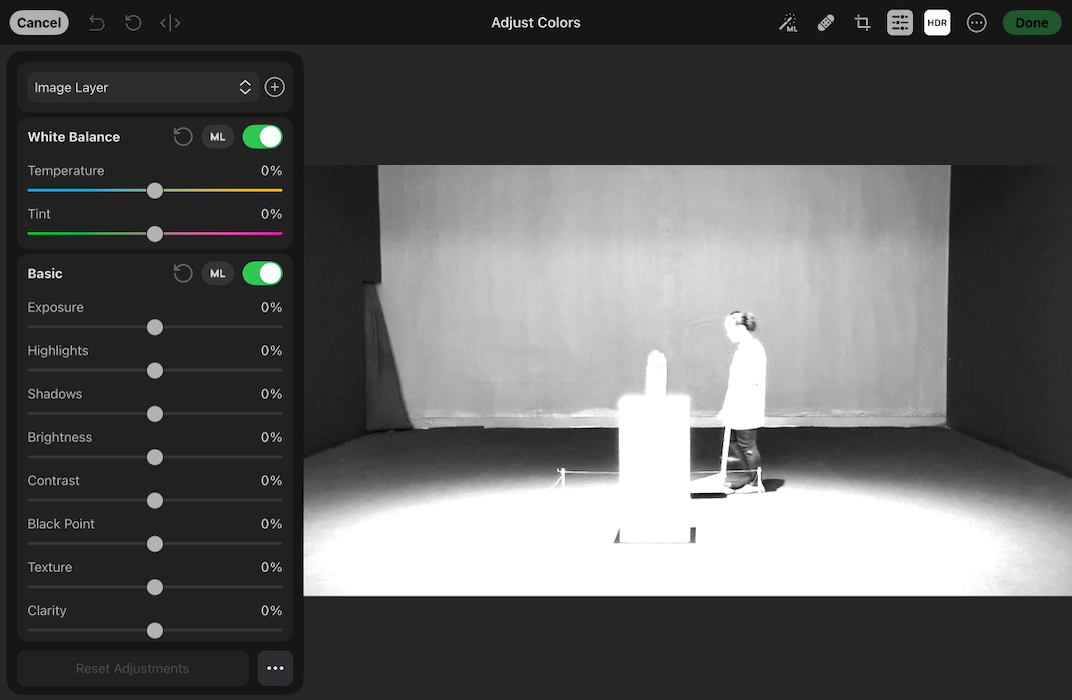
eXtensions - Tuesday 29 July 2025
By Graham K. Rogers

With the Q3 2025 financial report due this week, some analysts are positive. Some online sources are continuing their negativity on Tim Cook. This is old and stale. Some useful reporting has appeared on changes to the iPad; and some iPad features appearing on the Mac. Howard Oakley takes aim at AI writing. Like him, this site has no AI content.
In a couple of days, Apple will release its Q3 2025 financial report. Q3 is halfway through the fiscal year, and product releases are usually few although sales of the current devices are still continuing. This year (and for the foreseeable future) Apple, and the rest of the world have to deal with the economic bullying surrounding tariffs. Even more galling than the tariffs themselves, is the unpredictable nature how these are applied. There is no Art in these deals. It must be frustrating for CEOs and CFOs who are trying to run global companies when the playing field is constantly being changed.
 Taking these points into consideration, Malcolm Owen (AppleInsider) has a clear analysis, with a couple of useful graphs, outlining what we might expect next Thursday. With the timing of the announcements, after the NY markets have closed (17:00 ET), this is about 04:00 here. As I am usually up and about by 06:00 that is good timing for me. I can look at the press release and see early reactions, then wait for some deeper analysis and see how the share price varies later in the day. As I write this, AAPL is down from its December high of $259 and has picked up from a severe drop in April ($172) and is currently at $214.
Taking these points into consideration, Malcolm Owen (AppleInsider) has a clear analysis, with a couple of useful graphs, outlining what we might expect next Thursday. With the timing of the announcements, after the NY markets have closed (17:00 ET), this is about 04:00 here. As I am usually up and about by 06:00 that is good timing for me. I can look at the press release and see early reactions, then wait for some deeper analysis and see how the share price varies later in the day. As I write this, AAPL is down from its December high of $259 and has picked up from a severe drop in April ($172) and is currently at $214.
Owen includes analysis from three of the major financial houses, each of which seems to be fairly upbeat about the prospects, despite the hits that Apple and other companies (GM has absorbed $1B) have suffered from tariffs. This false medicine has never really worked as predicted. My history classes went into some detail about the Corn Laws in the UK which "were finally repealed in 1846, a triumph for the manufacturers, whose expansion had been hampered by protection of grain" Brittanica [my italics].
An archive at Nottingham University has some interesting documents from the time, and notes that, because of the price increases that occurred as a direct result of tariffs, "rioting was not uncommon." My favorite quick lesson on the disastrous Smoot-Hawley tariffs after the Great Depression is from Ferris Bueller's Day Off (1986) and is available on YouTube.
At the conference call there might also be some questions on Tim Cook's continuing in the position of CEO. This comes up from time to time and MacDaily News (look it up yourself, I will not dignify this) has been relentless in the last couple of months gnawing on this bone. This source was also in the vanguard of Cook criticism a few years back, not long after he was appointed as CEO (Steve Jobs' specific choice). This just destabilizes the company. Cook has built Apple up from that time. When Jobs died the share price (taking into account stock splits) was under $20. Perhaps some activist shareholder will put forward a vote at a board meeting to remove Cook, encouraged by MDN and others, but the company is doing well, and with current headwinds, a stable hand at the tiller is preferable to another whizz kid sugar water salesman.
I mentioned last time that Apple was about to announce a new Vince Gilligan (Breaking Bad, Better Call Saul) series, and Benjamin Mayo reports that Pluribus will be arriving in November. It stars Rhea Seehorn (Better Call Saul) and appears to be a sci-fi thriller. There is a teaser, but this does not reveal much at all. I expect some more substantial trailers will be released in coming months.
There are some new movies coming to AppleTV, Ryan Christoffel (9to5Mac) reports. These are Highest to Lowest, with Denzel Washington, and directed by Spike Lee; The Lost Bus with Matthew McConaughey, about a bus full of schoolchildren lost in a forest fire (based on a true story); and Formula 1 The Movie which has now passed $500 million at the box office. David Snow (Cult of Mac) reports on an interview with Ben Nedivi and Matt Wolpert, co-creators, who provide information about series 5 of For all Mankind and the new spinoff series Star City.
With the expected updates to Apple's operating systems expected around September, there has been much information about how the iPadOS is being adapted to be somewhat more Mac-like, without it actually using macOS. From what I have seen from Apple announcements and early comments, many of these changes will help productivity without taking away the feel of the iPad. However, as Ryan Christoffel (9to5Mac) reports, some changes to macOS will include iPad-like features, the most noticeable of which appears to be the loss of Launchpad, which will be replaced by something like the App Library. With other updates to System Controls, what Christoffel outlines sounds fairly positive.

What I have not read anywhere is news about the editing interface in Photos. I hated the change to the current look, which was based on what Apple thinks iPhone users want. This is particularly galling for the larger screen of the iPad, particularly as the controls did not match those on the Mac. There has been some catch-up (straighten/perspective/keystone) but no Color Controls or other important features. I am not a fan of Clean Up, and use it rarely. To do serious editing on images, I switch to 3rd party apps, for example, Photomator (which Apple has now acquired).

I retain Photos because of the synchronization it allows. My photos are available on all of my devices (including edit syncing) and that is important to me. iCloud also keeps my documents synchronized across all devices, with my MacBook Pro as the main device. All of the content, including a copy of my website, can be accessed on iPhone, iPads, and the Mac mini in the office. I back up the Mac several times a day, and on more than one disk. If you have ever lost data, this somewhat obsessive approach would make sense.
I was pleased to read an item by Howard Oakley (Eclectic Light Company) at the weekend on the use of AI in writing. While I accept that some tasks might be accomplished more quickly when AI is used, such as sorting images to detect problems (medical or industrial) and other fairly mechanical tasks, I draw the line at academic writing. I am fighting a losing battle here as the university enthusiastically supports the use of AI in this context, as long as some sort of acknowledgement is made; while several academic journals are encouraging the use of AI written content, again with the acknowledgement.
 A problem I keep coming across is that I can easily identify when AI has been used, starting with the word salads I am faced with, and the awful word choices that are inserted by the AI or AI grammar checker. What the non-native writers of these journal articles (or theses) cannot see is that this over-stuffed content, breaks a simple guideline: I would not write it like that. Not that I am the final arbiter for all writing, but I have been doing this for a number of years and my head is stuffed with more than half a century of text from a wide variety of sources. I look at certain sentences, or specific words and the alarms go off: that won't work.
A problem I keep coming across is that I can easily identify when AI has been used, starting with the word salads I am faced with, and the awful word choices that are inserted by the AI or AI grammar checker. What the non-native writers of these journal articles (or theses) cannot see is that this over-stuffed content, breaks a simple guideline: I would not write it like that. Not that I am the final arbiter for all writing, but I have been doing this for a number of years and my head is stuffed with more than half a century of text from a wide variety of sources. I look at certain sentences, or specific words and the alarms go off: that won't work.
The authors of these papers may read the output - I am not sure about this at all with some of the errors, including non-existent words, long before the arrival of the AI savior - and if they do, they fail to recognize that a word may not work, or there could be a better choice, or it is just plain wrong. A useful example here is output from the PR department, who send the English content to me to check and improve the writing. A week ago, I realized that the content source (not writer as this was easy to identify as not human) was different. I checked. I was right.
The young lady, who tells me she is so overwhelmed that she has to use AI to keep up, had tried Gemini instead of ChatGTP. I had already noted some repetitions across the texts I had been sent in the past, but this was different. This is how I have detected plagiarism in the past: the style. This brought a whole new catalogue of words. One caught my eye: "concurrently". This was used when describing three presentations that had taken place at an event. Had I not checked, and changed this (what I am paid for after all) we would have been informing readers that, somehow, 3 different academics were making presentations at the same time. It is this inability to identify words and their specific meanings, as well as the flowery sentences that some academics believe is a hallmark of good writing, that make AI in academic writing a no, no. For me.
![]() And Howard Oakley. He is strong in his affirmation that AI will not cross his threshold (nor mine), although like him I have tried it out and found it seriously wanting. He placed a symbolic owl at the top of his article as an indicator of true wisdom. I see that is also in the URL. I was tempted to copy that icon, but that would have been unethical. I have used a screenshot here, and acknowledge the Eclectic Light Company as the source. He links to other articles on plagiarism and ethics in the article.
And Howard Oakley. He is strong in his affirmation that AI will not cross his threshold (nor mine), although like him I have tried it out and found it seriously wanting. He placed a symbolic owl at the top of his article as an indicator of true wisdom. I see that is also in the URL. I was tempted to copy that icon, but that would have been unethical. I have used a screenshot here, and acknowledge the Eclectic Light Company as the source. He links to other articles on plagiarism and ethics in the article.
One thing I found interesting was his comment that the online sources he writes for have a ban on AI content. I thought this was a useful comparison with the academic journals (supposedly writing to higher standards) who allow such use. Again, the caveat for those journals is that the author must acknowledge the use of such artificial assistance. I am unable to say if any of those articles I have checked have such admissions when they are sent to the journals.
Graham K. Rogers teaches at the Faculty of Engineering, Mahidol University in Thailand. He wrote in the Bangkok Post, Database supplement on IT subjects. For the last seven years of Database he wrote a column on Apple and Macs. After 3 years writing a column in the Life supplement, he is now no longer associated with the Bangkok Post. He can be followed on X (@extensions_th). The RSS feed for the articles is http://www.extensions.in.th/ext_link.xml - copy and paste into your feed reader.

For further information, e-mail to
Back to
eXtensions
Back to
Home Page